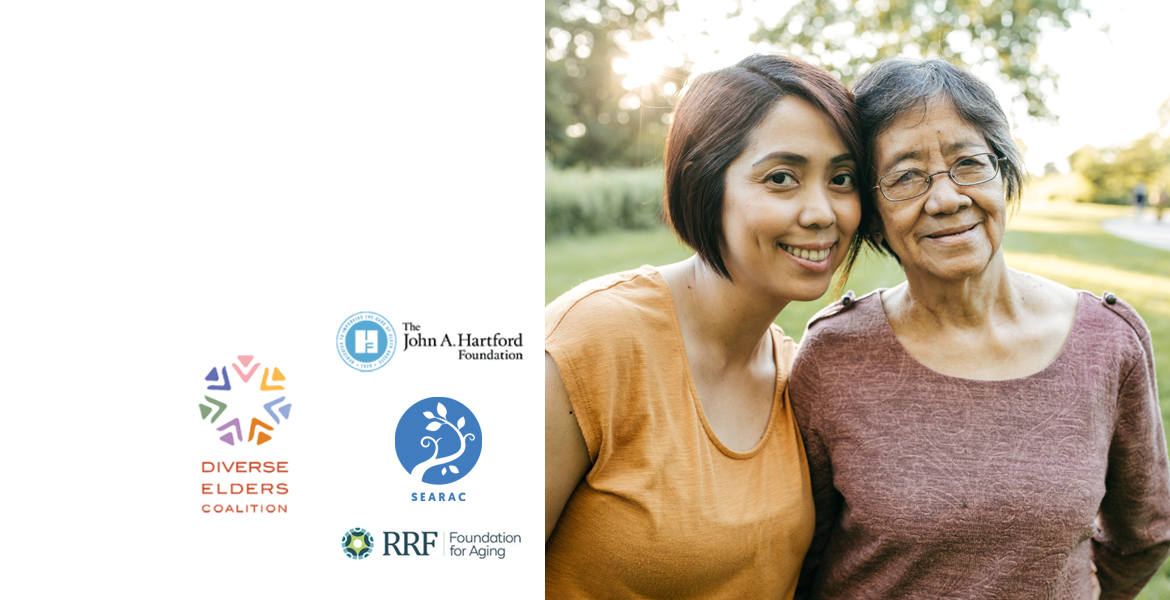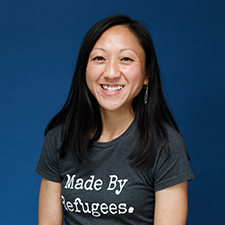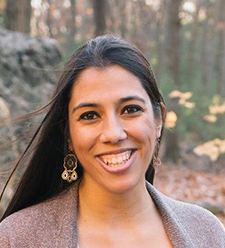
Register Now
Includes one complimentary Continuing Education (CE) credit
If you require ADA accommodation to participate in this webinar, please contact us at your earliest convenience to make arrangements—info@asaging.org.
This webinar will help providers further their understanding of the experiences of Southeast Asian American caregivers and improve their multicultural capacities to meet these caregivers’ needs. This webinar is part of the cultural competency training curriculum created by the staff of the Diverse Elders Coalition and its six member organizations, with the support of a grant from The John A. Hartford Foundation.
Much of the research and many of the statistics cited in the training were the result of a 15-month planning grant, during which the coalition completed a literature review, a survey of diverse family caregivers and a series of focus groups with family caregivers in diverse communities. The research was conducted nationwide, in eight languages, and was led by the older adults and caregivers represented by the coalition.
Participants in this webinar will be able to:
- Identify and address the unique needs and caregiving realities of Southeast Asian American caregivers;
- Gain an understanding of how culture impacts Southeast Asian American caregivers’ perceptions of care and their health outcomes; and
- Develop skills to deliver Southeast Asian American–competent, person-directed care to improve health outcomes among Southeast Asian American caregivers.
Presenters:
 Quyen Dinh is the executive director of the Southeast Asia Resource Action Center (SEARAC). SEARAC represents the largest refugee community ever resettled in America as a civil rights organization and works to empower Cambodian, Laotian and Vietnamese American communities to create a socially just and equitable society through policy advocacy, advocacy capacity building, community engagement and mobilization.
Quyen Dinh is the executive director of the Southeast Asia Resource Action Center (SEARAC). SEARAC represents the largest refugee community ever resettled in America as a civil rights organization and works to empower Cambodian, Laotian and Vietnamese American communities to create a socially just and equitable society through policy advocacy, advocacy capacity building, community engagement and mobilization.
 Nina Darby has delivered trauma-informed programming and training for the past 10 years in Boston, facilitating trainings with people who hold diverse identities and lived experiences, and serving as the Training and Organizational Development Manager at Boston Senior Home Care. There she trained nurses, case managers and geriatric support services coordinators on the unique needs of elders and family caregivers who are diverse in race, ethnicity, sexual orientation, gender identity, immigration status, language, culture and more.
Nina Darby has delivered trauma-informed programming and training for the past 10 years in Boston, facilitating trainings with people who hold diverse identities and lived experiences, and serving as the Training and Organizational Development Manager at Boston Senior Home Care. There she trained nurses, case managers and geriatric support services coordinators on the unique needs of elders and family caregivers who are diverse in race, ethnicity, sexual orientation, gender identity, immigration status, language, culture and more.

